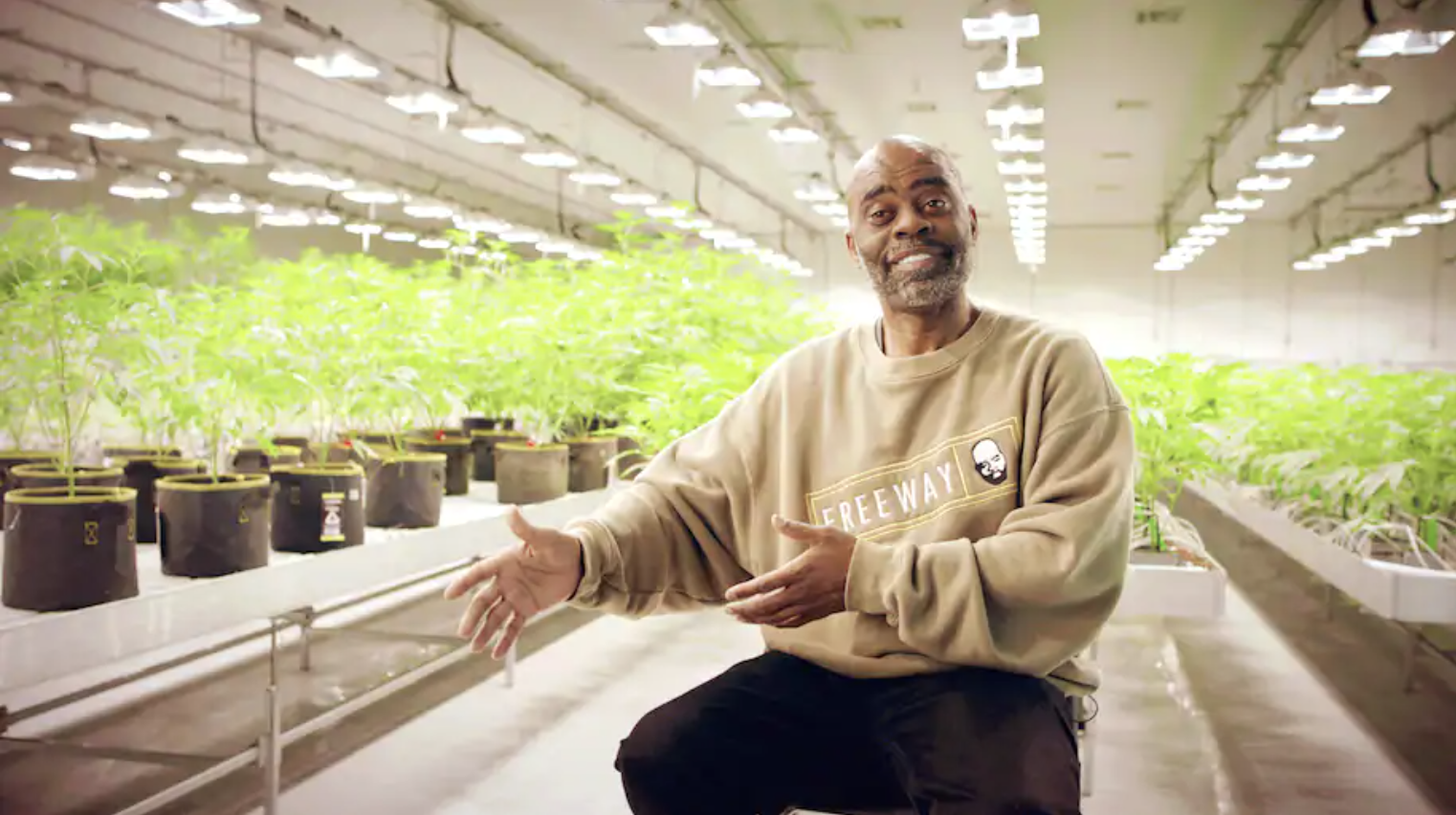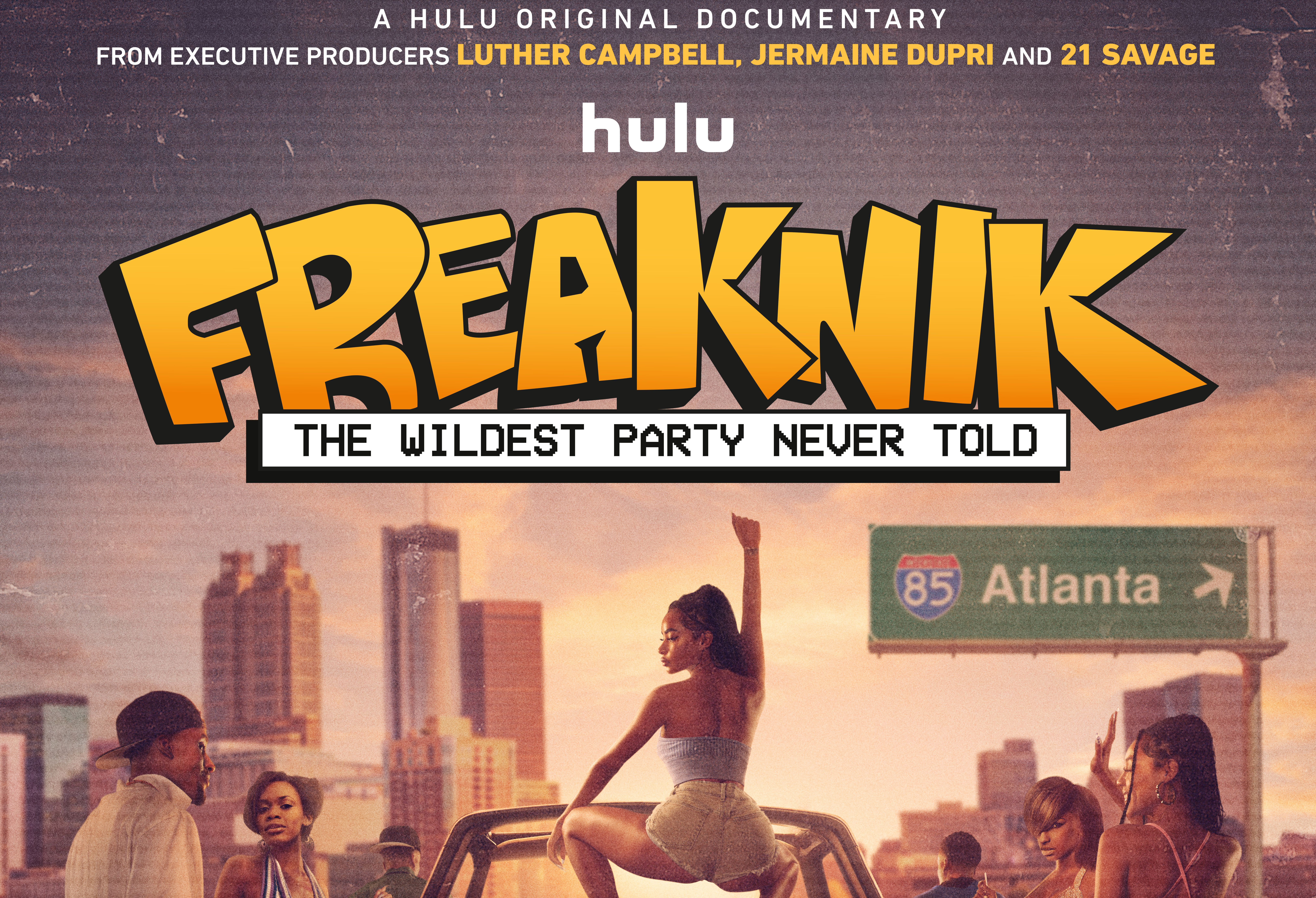Like all good documentaries that tackle a complex and broad subject, “Smoke” (executive produced and narrated by rapper Nasir “Nas” Jones and directed by Erik Parker) emphasizes the big picture first, through marijuana’s influence in the music industry. Recalling his jazz-musician father’s use of marijuana, Nas introduces the viewers to the idea of the drug as a benign and presumed part of life rather than as an illicit vice — a conduit rather than an affliction. Others acknowledge the drug’s creative influence, while journalists who write about Black culture help pinpoint marijuana’s role in art and lyrics.
“I just like smoking weed,” singer Ty Dolla $ign says. “It’s just something I do. I’m definitely one of those people where my brain is doing 2,000 things at once. For me, it’s more a thing that keeps me focused on whatever I’m doing. . . . I see the light, you know what I’m saying?”
“Smoke” takes an abiding interest in the ways marijuana was demonized and criminalized over the last century, including the barely veiled racism that propelled “Reefer Madness” and other warnings to parents and teens, beginning in the 1930s.
It also homes in on the strikingly inconsistent ways society began to treat pot. While young, White users made it more popular in the 1960s (and could often skirt legal consequences for casual use and distribution), the Black experience of marijuana in popular culture can be illustrated by two polar-opposite, cult-hit movies that insinuated themselves into the collective conscience: Cheech and Chong’s 1978 stoner comedy “Up in Smoke,” which set a template for the eternal quest to chill, and Brian De Palma’s violent 1983 drama “Scarface,” about a Cuban immigrant who becomes a cocaine kingpin.
One has nothing to do with the other, but all of it comes under the full assault of the Reagan-era (and later Bush-era) “war on drugs,” which had a ruinous effect on Black Americans, who were sent to prison in disproportionate numbers for marijuana-related crimes.
As just one example, the film briefly tells the story of Corvain Cooper, the owner of a clothing boutique in Los Angeles who in 2013 was arrested and charged with some 50 other people in connection with a 1,000-kilogram shipment of marijuana. Although his alleged involvement in the deal was minimal, under the “three strikes” law Cooper received a life sentence, which he is serving in a Louisiana prison, too far away for his family to visit. In a cruel epilogue to his plight, Cooper’s former boutique briefly became a legal marijuana dispensary.
Bit by bit, the message of “Smoke” grows more upsetting and vital, and the film never loses its way, arriving at a present and urgent conundrum: As cannabis legalization wins public approval and dispensaries open in several states, the U.S. pot business will be a $30 billion industry by 2025, but Black-owned businesses, a few of which are profiled here, account for only a fraction (about 4 percent) of the American market.
Activists and some elected officials — including Sen. Cory Booker (D-N.J.), Vice President-elect Kamala D. Harris, Illinois Gov. J.B. Pritzker (D) and State’s Attorney Kim Foxx (D) of Cook County, Ill. — agitate for the obvious shot at some restorative equity here, such as establishing laws and programs that give Black entrepreneurs, especially those with prior drug convictions, a chance to sell marijuana legally.
Under California’s equity program, “Freeway” Ricky Ross is one such business owner who turned his life around by building a cannabis business in Los Angeles. “This industry is going to be bigger than tobacco and alcohol put together,” Ross says. “This could be one of the biggest transfers of wealth since oil.”
Smoke: Marijuana + Black America (two hours) airs Wednesday at 10 p.m. on BET.
Pictured: “Freeway” Ricky Ross in “Smoke.” (BET)





